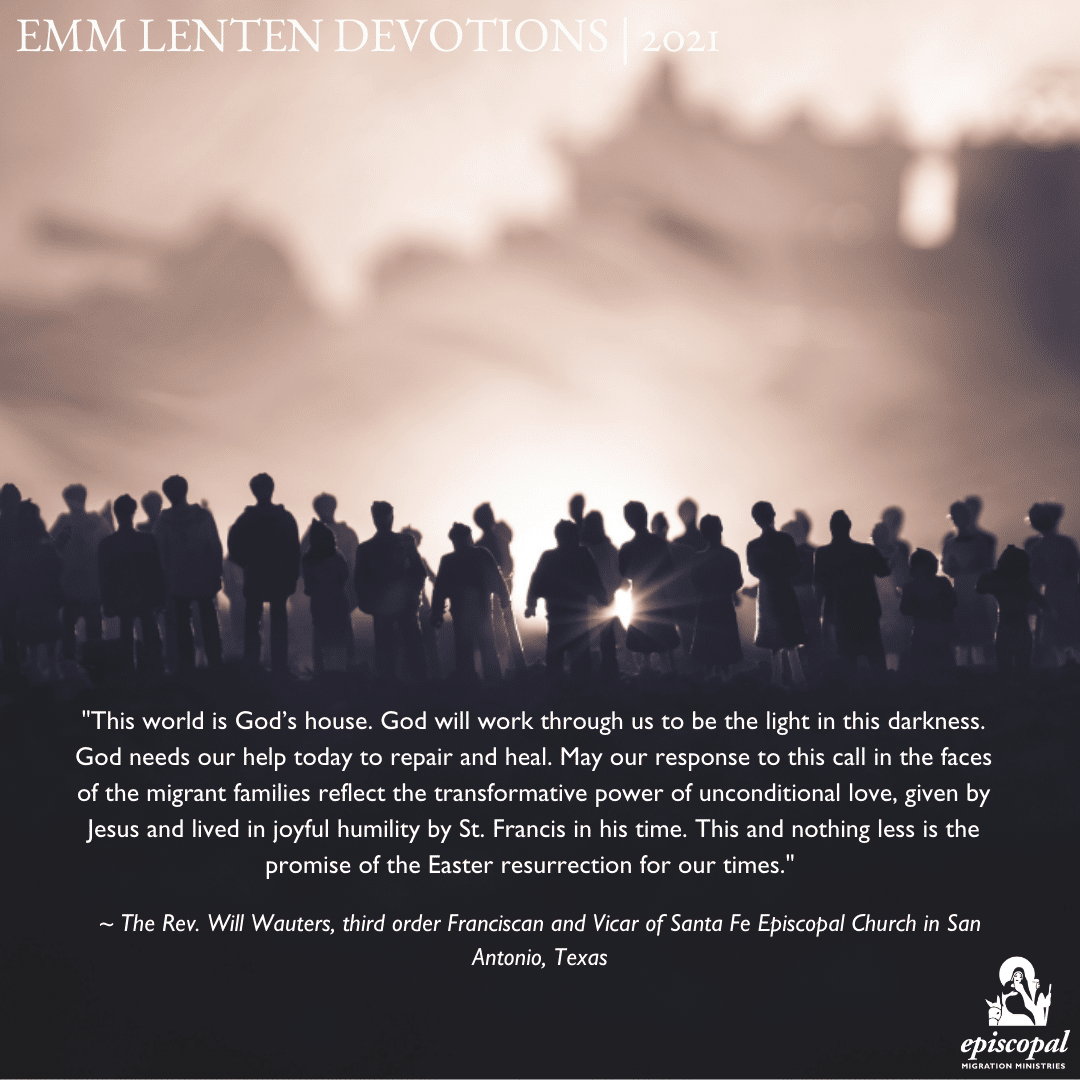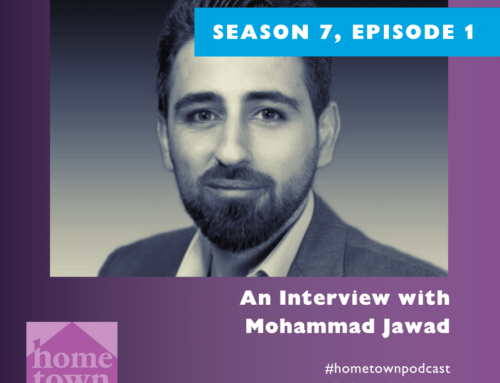Isaiah 58:12
you shall be called the repairer of the breach
Reflection by The Rev. Will Wauters
Having failed twice at being a knight in wars, the young Francis of Assisi was at a desperate moment of his life. He was trying to discern the meaning of a voice in a dream he had had near Spoleto – only a day’s ride from Assisi in his heroic quest as a warrior. The voice said:
“Francis, what is better: to serve the master or the servant?”
“Why, Sir, the master of course.”
“Then why are you serving the servant? Return to Assisi and it will be shown what you are to do.”
Francis thought he must be confused. He wanted his life to be one of valor, chivalry and honor. What was this message really saying to him? He found his way to the broken dilapidated chapel of San Damiano down the hill from Assisi. His eyes were prayerfully fixed on a neglected crucifix above the altar when he heard a voice again: “Francis, go and repair my house, which as you see, is falling into ruins.”
In his bewilderment, Francis began gathering stones to repair the chapel. Surely this was the instruction to repair neglected churches. Despite having few skills in this construction work, Francis felt his God’s given task was similar to the message of the prophet Isaiah in Chapter 58:12, “You shall be called the repairers of the breach, the restorer of the streets to dwell in.” Francis took his task quite literally and over a couple of years had learned to beg for stones to rebuild several chapels. His life was simple but very hard as he worked prayerfully to rebuild the house of God. His piety and purpose gained many followers.
Francis came to realize the house of God was not just the solid walls of San Damiano. He saw his calling to rebuild the people of God through faith, prayer and love. So, too, we are called by the words of the prophet to be “repairers of the breach”.
We are called to do concrete acts such as providing food, clothing and shelter to people coming to the borders of the United States seeking refuge from persecution, horrific violence and extreme poverty. Providing asylum is not just providing a safe place to live though that is a necessary first step.
Like Francis, we too, come to learn that caring for the least of our brothers and sisters is a transformative process for both the asylum seekers, the migrants and ourselves. The repairs we are called to are spiritual as well as physical. We are called to heal the souls of the victims and their persecutors. If we allow the persecution of human beings or allow for starvation to occur as a result of wars, or allow violence to persist from gangs and drug lords, we must acknowledge that our hearts, our souls, our conscience are neglected and in need of reparation as well. Why? This world is God’s house. God will work through us to be the light in this darkness. God needs our help today to repair and heal. May our response to this call in the faces of the migrant families reflect the transformative power of unconditional love, given by Jesus and lived in joyful humility by St. Francis in his time. This and nothing less is the promise of the Easter resurrection for our times.
Questions for reflection:
- If you heard a voice today to “repair my church” what would be the actions you would undertake? What actions are needed to heal and repair the church?
- Have you had a ” counter evangelism” where you thought it was you who was to do the evangelizing with the poor or marginalized only to realize it was they and their lives who were unveiling the “Good News” to you?
- Dom Helder Camara, a famous Roman Catholic Bishop, once noted,” When I gave food to the poor and hungry, they called me a saint. When I asked why the poor had no food, they called me a communist.” How might this observation apply to ministry with migrants and asylum seekers?
***
The Rev. Will Wauters is third order Franciscan and Vicar of Santa Fe Episcopal Church in San Antonio, Texas.
Maundy Thursday:
Today is Maunday Thursday. “Maundy” derives from the Latin word ‘mandare’, from which we get the word ‘command’. On this day, we remember Jesus’s command: “Love one another as I have loved you.” Some ritual practices include the sharing of an agape meal in memory of the Last Supper, sharing in the washing of feet, the stripping of the altar and the reserving of the Sacrament. On Maundy Thursday in 2016, Pope Francis washed the feet of migrants on the outskirts of Rome.





